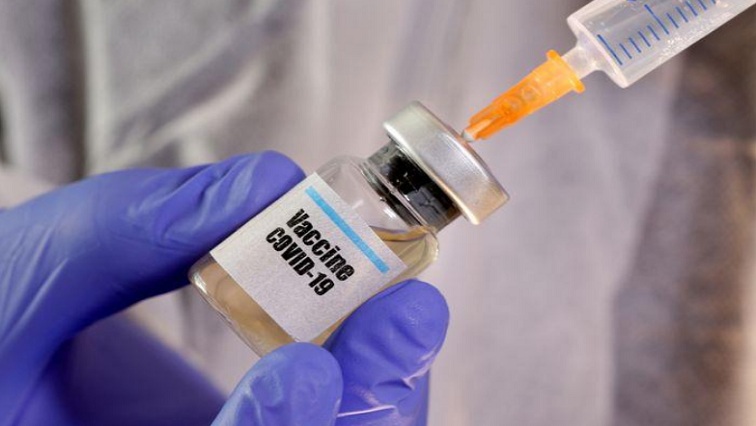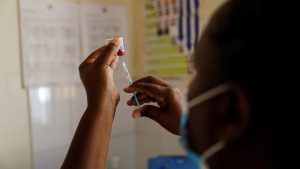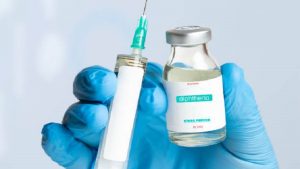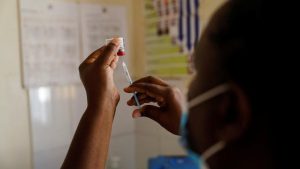Researchers at Britain’s Oxford University have made a breakthrough in their quest to develop an effective coronavirus vaccine. Yesterday, the University and their partner, pharmaceutical giant, AstraZeneca published their preliminary results from large-scale trials.
The vaccine has proven to be 70% effective at protecting people from the disease. South Africa is involved in at least four local and global trials geared at finding a vaccine for COVID-19.
It has been more than a year since the first coronavirus case had been detected in Wuhan, China. Now, 1.4 million global deaths later, it seems there is light at the end of the dark 2020 tunnel. On Monday, a pharmaceutical company, AstraZeneca, announced that late-stage trials of its COVID-19 vaccine, developed in conjunction with the UK’s University of Oxford, have shown to be highly effective. The results are the third promising vaccine breakthrough in the fight against the coronavirus. Earlier this month, US drug-makers, Pfizer and Moderna, reported preliminary results from late-stage trials, showing that their vaccine candidates had been almost 95% effective.
“Overall in the trails across the UK and Brazil, we managed to prevent about 70% of infection. Importantly, people who were vaccinated, no one was hospitalized, one had severe disease. Intriguingly, in one of the groups where we gave half a dose of the first dose, then a full dose, we saw 90% protection. That suggests we’ve got a regiment of vaccinating that might have a lot more doses to be used. That regimen is also able to reduce asymptomatic infection,” says Oxford University Vaccine Group Andre Pollard.
The first COVID-19 vaccinations could take place in early to mid-December:
Pfizer and its German partner, BioNtech, want emergency licensing for their product so that they can start the distribution of the vaccine that’s proven to be 95% effective in preventing infection.
There are, however, concerns over storage because the vaccine needs to be kept at minus 80 degrees and has a short shelf-life.
Chairperson and Chief Executive Officer of Pfizer, Albert Bourla, says 50 million doses will be manufactured before the end of the year. “Ninety percent is a game-changer, 90 % is a tool in the war against this pandemic. How long this protection will last is something that we don’t know right now but it’s part of the objective of the study. We will follow up with the 44 000 people that were part of this study for two years.”
South Africa is participating in four vaccine trials; the Oxford trial, the Pfizer-BioN Tech trial, the one from Johnson and Johnson as well as the Novavax Vaccine trial. Professor Shabir Madhi, Executive Director of the Vaccines and Infectious Diseases Analytics Research Unit at Wits University, says the Oxford vaccine is cheaper and can be stored at fridge temperature.
“For there to be a sufficient amount of COVID-19 vaccine globally and for us to gain access to this vaccine, it requires multiple manufacturers and vaccine developers to be successful. The results that were released by Oxford and AstraZeneca indicate that this vaccine is as competitive as the Pfizer and Moderna vaccine. For most middle-income countries this vaccine may be better suited in terms of being deployed.”
The progress in finding a vaccine for the coronavirus has brought on a scramble to procure the drug. Already wealthier nations, like the United Kingdom, have pre-ordered 30 million doses of the Pfizer vaccine. The burning question for South Africans is when will the vaccines reach our shores and who will be prioritised?
“It very much depends on what the government is doing over the next few weeks with engaging the COVAX facility and directly with manufacturers. My estimate is that we only will gain access to a reasonable quantity of the vaccine around May/June. The WHO has indicated that the priority groups to be considered for the vaccine when there is limited supply includes healthcare workers, people over the age of 65 and co-morbidities,” says Wits Professor Shabir Madhi.
AstraZeneca says they will be manufacturing as many as 200 million doses of the vaccine by the end of the year while Pfizer estimates it could have up to 50 million doses of its vaccine available by the end of 2020, and up to 1.3 billion doses by the end of next year.






